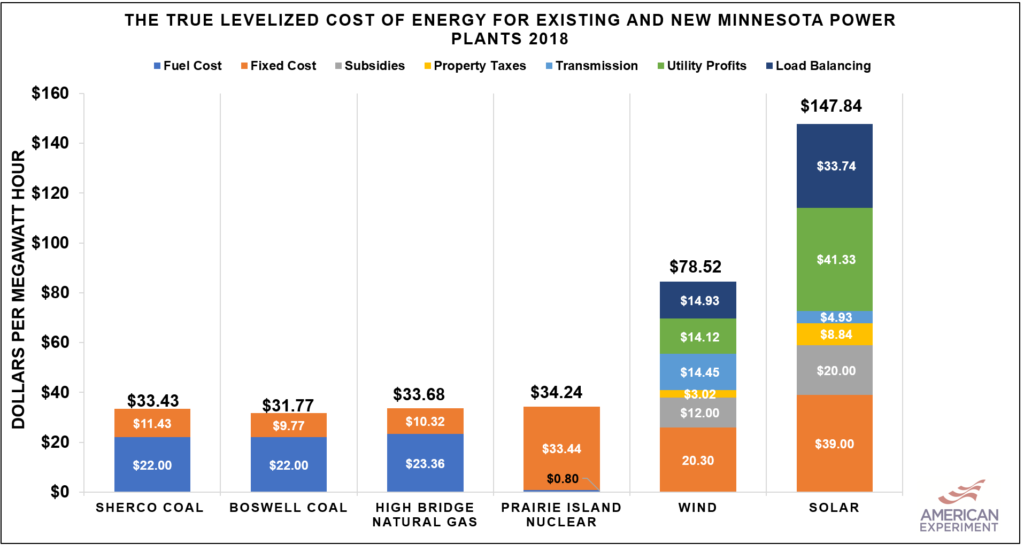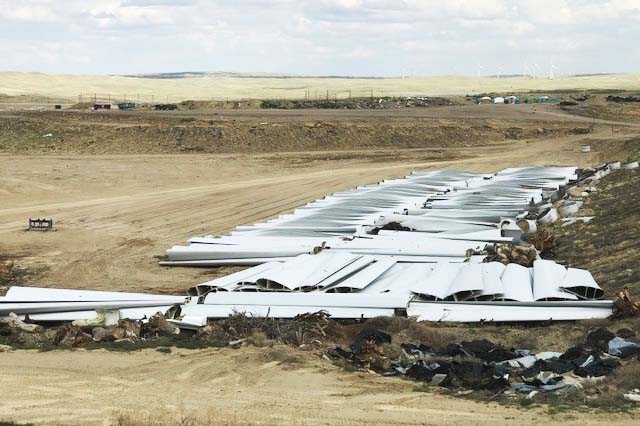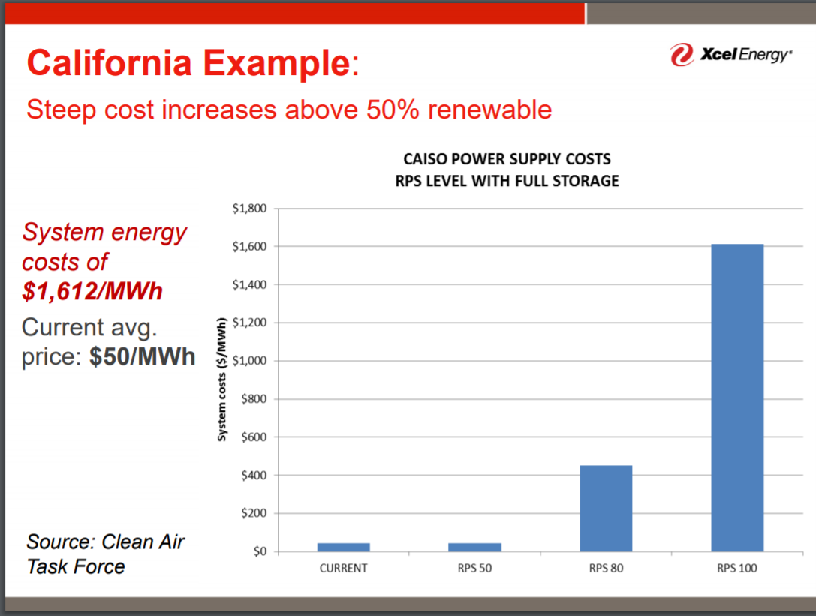Clown Show: Union of Concerned Scientists Claims Nuclear Power Plants Are Not Clean Energy
As at least 1,900 of you know, Center of the American Experiment is encouraging our readers to sign our petition to fight Xcel Energy’s proposed Green New Deal because it would cause electricity prices to skyrocket, and threaten the reliability of our grid.
We need as many people to sign this petition as possible because liberal environmentalists are submitting their own fact-free comments to the Public Utilities Commission, and we need to make sure they know there is strong, conservative opposition to the plan.
One of the liberal groups sending comments is the Union of Concerned Scientists, and their comments are stunningly misleading. You can read their form letter below:
“Xcel Energy’s resource plan takes some big steps forward with a vision of 100 percent carbon-free energy and plans to be coal-free in Minnesota by 2030. But their plan to build a huge new fossil fuel gas plant in Becker and extend the license of its aging Monticello nuclear plant by a decade is a step backward.
We can’t avoid the dangerous and unjust impacts of the climate crisis if we swap coal for another polluting fossil fuel, and every dollar Xcel spends on nuclear is one less spent on clean energy.
Xcel must invest in solutions that heal our environment and communities. Xcel’s plan should focus on achieving 100 percent clean energy by prioritizing energy efficiency, renewables, energy storage, equitable workforce development, and plant community and worker transition, while accounting for robust community solar and distributed generation development.
We must support a just transition away from fossil fuel energy without overbuilding or overinvesting in infrastructure that harms all communities, but especially BIPOC (Black, Indigenous, and People of Color) communities. Infrastructure like trash incineration, including the HERC garbage burner, which pollutes the air of North Minneapolis. And infrastructure like gas plants, which poison communities where the gas is extracted, and exacerbates climate change.
Xcel Energy should avoid building new fossil fuel infrastructure like natural gas plants when cleaner, less risky, and less expensive alternatives are available. By investing in additional wind power, solar resources including community and rooftop installations, and grid management tools like energy storage and demand response programs, Xcel Energy can provide electricity that is cheaper, more renewable, and more equitable without relying on risky investments in fossil fuel power that takes Xcel in the opposite direction of its stated goals to achieve 100 percent carbon-free power.
For our climate, our economy, and our communities, Minnesota can’t afford a 15 year plan that does not drive us closer to 100 percent clean energy but instead sticks consumers with gas plants, undermining our clean energy future.”
Apparently, the Union of Concerned Scientists isn’t concerned about making sure that Minnesota does not experience the same kinds of rolling blackouts that California experienced in August when electricity demand soared as the sun was going down. If they were, they would acknowledge that if you want to close down coal and nuclear plants in the state (which are bad ideas that will increase electricity prices), then you need to have a reliable resource to keep the lights on, and that resource is natural gas.
Out to Lunch on Nuclear
Regarding the nuclear plants, Minnesota’s existing nuclear fleet is the lowest-cost source of non-emitting electricity in the state, according to data from the Federal Energy Regulatory Commission (FERC). The Prairie Island nuclear facility generated reliable electricity for $34.24 per megawatt hour, which is less than half the cost of new wind facilities in the state.

What’s more, nuclear power plants do not require “backup generation” to make sure we still have enough electricity when the wind isn’t blowing or the sun isn’t shining, and because they are large sources of power that are nearly always available, Minnesota does not need a huge buildout of expensive transmission lines to connect far away wind turbines in the Dakotas to the Twin Cities. Lastly, because much of the capital cost of these power plants has been paid off, the amount of utility profit earned by Xcel is lower.
UCS’s claim that “and every dollar Xcel spends on nuclear is one less spent on clean energy” is also laughably incorrect. Every dollar Xcel spends on nuclear is a dollar they are spending on clean energy, and dollar for dollar, nuclear produces much more clean energy than wind or solar.
Those who argue that nuclear waste is a problem really don’t understand the issue. Unlike wind, solar, natural gas, or coal plants, nuclear plants are the only sources of power that completely capture their waste stream on site and safely contain it in concrete casks. The fact that there is no national nuclear repository is irrelevant, because the waste is already safely stored on site.
Additionally, with continued investment, Xcel’s nuclear plants could operate for up to 80 years, whereas wind turbines only last for 20 years, and solar panels only last for 30 years before the wind turbine blades and panels end up in a landfill somewhere.

“Environmental Justice”
You may have noticed that “environmental justice” has been a theme on our website lately. That’s largely because it seems like every liberal environmental group in the country is jumping aboard the bandwagon of paying lip service to helping low-income communities while at the same time advocating for policies that make life more difficult for them.
Relying on a grid powered by wind, solar, and battery storage would be exponentially more expensive than today’s grid, and low-income families already pay more of their monthly income to pay for energy than the types of wealthy wine-cave dwelling liberals who advocate for this energy nightmare to become reality.
According to a presentation given by Xcel Energy to the Midwest Governor’s Association, a grid powered by wind, solar, and battery storage would produce wholesale power prices of $1,612 per megawatt hour. This means the average Minnesota household with Xcel as their energy provider using 648 kilowatt hours per month would see their average monthly bill increase from about $91.30 to $1,036.80, or more than $12,000 per year!

Not only would their preferred energy mix harm low-income communities the most, the loss of a reliable power grid would disproportionately harm them, too.
UCS has no plan for making sure the grid is able to provide electricity when the wind isn’t blowing or the sun isn’t shining. It is low income households who will be hurt the most when there isn’t enough electricity to run their refrigerator and they have fridge full of spoiled food or medicine they were keeping cold.
Center of the American Experiment has it’s own qualms with Xcel Energy’s plans, but the positions voiced by UCS are completely unserious and are detrimental to the groups they are pretending to care about.